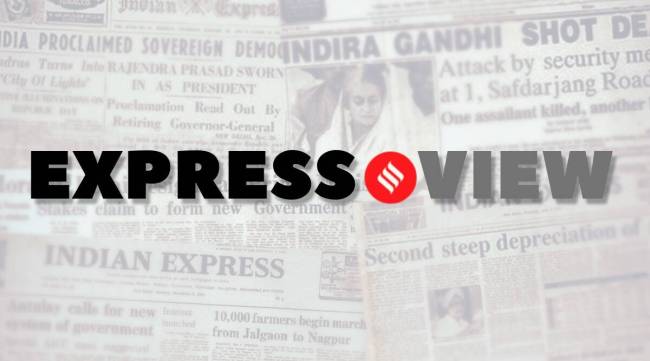Opinion Prime Minister Pushpa Kamal Dahal: The new Kathmandu
For Delhi, Deuba's departure is a disappointment. Yet its focus must remain on building on the ties that bind
 Prime Minister Narendra Modi was the first foreign leader to congratulate Dahal, but for Delhi, Deuba's departure is a disappointment.
Prime Minister Narendra Modi was the first foreign leader to congratulate Dahal, but for Delhi, Deuba's departure is a disappointment. The elevation of Pushpa Kamal Dahal as the Prime Minister of Nepal and leader of a left-led coalition after the fractured mandate of the November election is not entirely a surprise. In the country’s second election since becoming a republic, the Nepali Congress emerged as the single largest party with 89 seats in the 275-member Parliament. Its pre-election alliance with Dahal’s Communist Party of Nepal (Maoist Centre) was an extension of Dahal’s support to NC leader Sher Bahadur Deuba in their joint 2021 project to oust the Communist Party of Nepal (unified Marxist-Leninist) leader Khadga Prasad Sharma Oli from prime ministership. At the time, Dahal walked out on Oli as he was denied the prime ministership for the second half of the five-year term that began after the election in 2017. It was clear that in return for Dahal’s support last year, Deuba had made an effort to retain him on his side, and that nothing less than a grand bargain would have to be negotiated. But there was nothing of the kind. It appears that Dahal’s decision to break out of the Deuba-led coalition came after a firm no from the Nepali Congress leader to Dahal’s demand that he be made PM. Oli knew his old foe Dahal only too well, and was quick to read his mind. His decision to give Dahal what he wanted has brought the two left rivals back together in a ruling alliance in which Oli is sure to play the back-seat driver. That by itself portends friction in a coalition that is a reprise of two previous alliances between the two communist parties since 2015.
This time, there are other parties in the mix whose presence in the left-led coalition is surprising. One party wants Nepal to return to its days as a Hindu monarchy and has declared “outside support” to the Prachanda government. Another is a new party that seeks to represent Nepal’s youth. Since the monarchy was abolished, Nepal has seen at least 10 governments come and go. It is safe to assume that this government too will be short-lived.
Prime Minister Narendra Modi was the first foreign leader to congratulate Dahal, but for Delhi, Deuba’s departure is a disappointment. In the short duration that he was PM, the two countries managed to repair several broken parts in bilateral ties. While Dahal has a positive equation with Delhi, the oversize influence of Oli, who wooed Beijing assiduously during his two terms in office, is likely to throw up challenges for Delhi’s diplomacy. But India’s ties with Nepal are more than the bilateral equation. Delhi’s focus must remain on building on the ties that bind, while dealing with the issues that divide.






